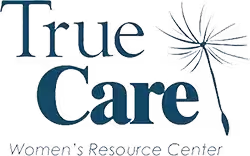According to the National Alliance of Mental Illness (NAMI), 1 in 5 adults in the United States experience mental illness in a given year, and 1 in 5 youth (ages 13-18) will experience a severe mental disorder at some point in their lifetime. With such high statistics, mental illness is not an issue to be taken lightly. The people struggling may be our siblings, our parents, and even ourselves. Many are women of child-bearing age who must learn to navigate the world of pregnancy hormones, keeping baby safe, medications, their own illness, and welcoming a newborn into their household. Unfortunately, there is a stigma attached to mental illness, and the lack of resources available makes it difficult to find the support needed.
What is Mental Illness?
Mental illness is a series of disorders that affect mood, thinking, and behavior. Some examples of mental disorders include anxiety, PTSD, depression, bipolar disorder, and schizophrenia. Most experts believe that a combination of genetics, environment before and after birth, and brain chemistry all work together and play a role in developing a mental illness.
Can a woman have a healthy pregnancy if she is mentally ill?
Many women who struggle with a mental disorder do have happy and healthy pregnancies; however they have many more potential pitfalls and risks than other women. Often they struggle with fluctuating moods during pregnancy and have an increased risk for post-partum depression after the baby is born. These women must weigh the risks of psychiatric medication on their unborn baby with the risk of relapse or even suicidal thoughts if they stop their medication. They need to have good support because fluctuating hormones during and after pregnancy put them at high risk of relapse. A pregnant woman or new mom who is dealing with mental illness needs proper rest (can be hard with a newborn,) good nutrition, sometimes physical help with the baby, and a plan to spot increasing symptoms and get help if needed. Sometimes having a supportive person who is in the know and can watch for symptoms can help a woman struggling emotionally to reach out to her doctor or counselor for help.
Weighing medication risks:
It is very important for women on psychiatric medication to talk with their doctor prior to becoming pregnant if possible or as soon as possible once they find out they are pregnant. Many psychiatric medications have been safely used during pregnancy with good outcomes for mom and baby; however some are considered harmful during pregnancy. Check out this article to learn about the different classes of drugs and potential effects.
Some things to consider when weighing the risks of medication vs the risks of stopping:
- The safety record of the specific medication. If the medication is considered harmful to the baby, the doctor will work with the woman to help her lower her dose, stop the medication, or switch to a different type with less risk.
- The severity of the mental illness. An article in Current Psychiatry stated that “If a depressed woman has a history of relapse or severe symptoms, including suicide attempts and inpatient psychiatric admissions, it is recommended that she remain on antidepressants or mood stabilizers, regardless of pregnancy status.”
- Never stop a medication on your own without working with your doctor on proper weaning down on the dose and a plan in place in case the symptoms return.
Final Tips
In summary, if you struggle with mental illness and are pregnant:
-Communicate with your doctor and counselor/psychiatrist right away. They can help you navigate the medications and get a pregnancy plan in place.
-Find a friend or family member willing to be a part of your plan. They can help spot mood fluctuations and push you to get help even if you find yourself unable to cope or so depressed you don’t want help.
-Pregnancy and the post-partum period will end eventually. Remember even in hard times, there is a light at the end of the tunnel. You can do this!
– Don’t be afraid to ask for help from friends, doctors, counselors, and even a hospital if needed. You are worth the help.
